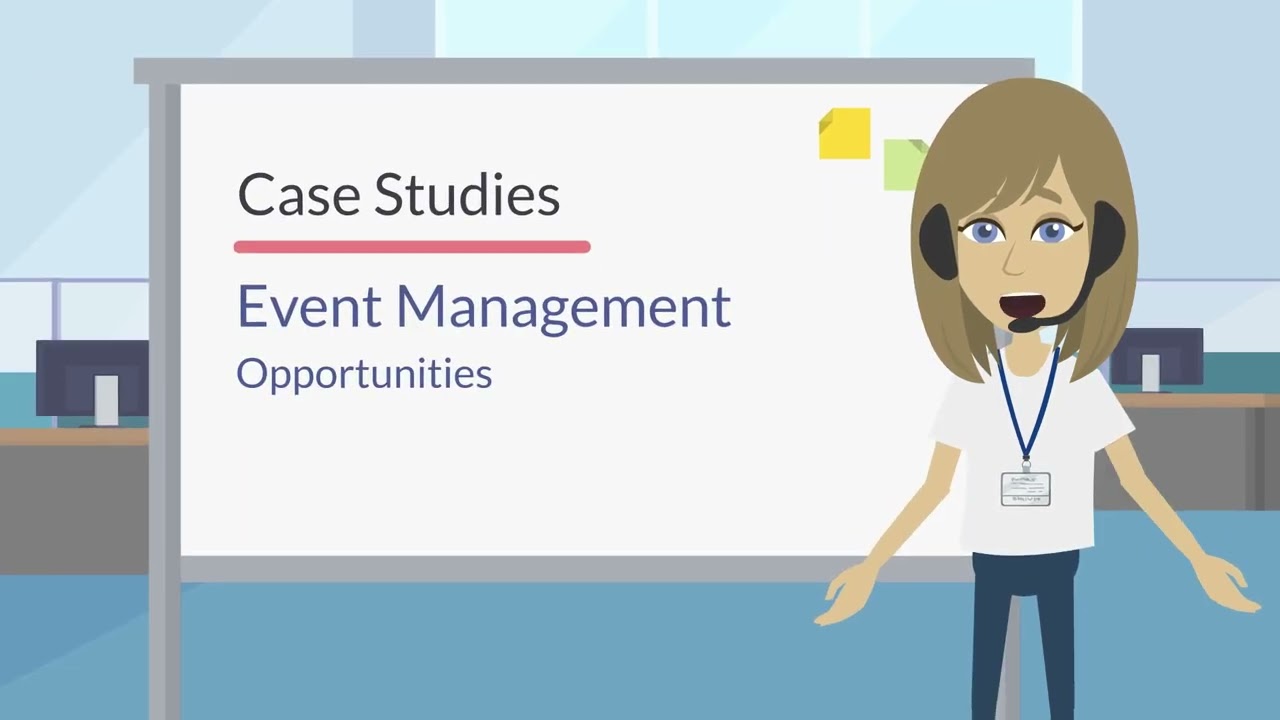The Ultimate Guide to Successful Event Management: Tips, Tricks, and Best Practices
Event management
Planning and executing a successful event can be a challenging undertaking. Whether you are organizing a corporate conference, a charity gala, or a music festival, event management requires careful strategizing, flawless execution, and attention to detail. In this ultimate guide to successful event management, we will equip you with tips, tricks, and best practices to ensure your next event is a resounding success.
From pre-event planning to post-event evaluation, this guide will cover the entire event management process. We will explore key aspects such as budgeting, venue selection, marketing and promotion, logistical considerations, and attendee engagement. With insights from industry experts and real-life case studies, you will gain valuable knowledge that will help you navigate the complexities of event management with confidence.
Whether you are a seasoned event planner or a novice organizer, this guide will provide you with practical advice and actionable steps to optimize your event planning and execution. So, get ready to take your event management skills to the next level and create unforgettable experiences for your attendees. Let’s dive in!

Importance of successful event management
Organizing a successful event is a complex and multifaceted endeavor that requires meticulous planning, coordination, and execution. Effective event management is crucial for a variety of reasons. Firstly, it ensures that the event runs smoothly and efficiently, providing a seamless experience for attendees. When an event is well-managed, it reflects positively on the organizers, building trust and credibility with the audience.
Moreover, successful event management can have a significant impact on the overall success and impact of the event. A well-planned and executed event can effectively achieve the desired objectives, whether it’s driving brand awareness, generating leads, raising funds for a cause, or fostering meaningful connections among attendees. Conversely, poorly managed events can result in logistical issues, dissatisfied attendees, and even financial losses, which can have a detrimental effect on the organizer’s reputation and future event planning efforts.
Effective event management also plays a crucial role in maximizing the return on investment (ROI) for event organizers. By carefully managing budgets, optimizing logistics, and enhancing the attendee experience, event organizers can ensure that the resources invested in the event are used efficiently and effectively. This, in turn, can lead to increased ticket sales, sponsorship opportunities, and other revenue streams, making the event a financially viable and sustainable endeavor.
Key elements of successful event management
Successful event management encompasses a wide range of components, each of which plays a vital role in ensuring the overall success of the event. Some of the key elements include strategic planning, budgeting, venue selection, marketing and promotion, logistics coordination, and post-event evaluation.
Strategic planning is the foundation of successful event management. This involves defining the event’s objectives, identifying the target audience, and developing a comprehensive plan that outlines the key milestones, timelines, and action items. Effective strategic planning helps event organizers stay focused, anticipate potential challenges, and make informed decisions throughout the planning and execution process.
Budgeting is another critical element of event management. Developing a realistic and well-structured budget is essential for managing costs, allocating resources effectively, and ensuring the financial viability of the event. Event organizers must carefully consider all potential expenses, such as venue rental, catering, equipment, staffing, and marketing, and create a budget that aligns with the event’s objectives and available funding sources.
Venue selection is a crucial decision that can significantly impact the overall success of an event. Event organizers must carefully evaluate factors such as location, accessibility, capacity, amenities, and compatibility with the event’s theme and objectives. The chosen venue should be able to accommodate the event’s needs, provide a comfortable and engaging environment for attendees, and align with the event’s brand and image.
Choosing the right event management team
Assembling a skilled and dedicated event management team is essential for the success of any event. The team should comprise individuals with diverse expertise and complementary skills, ensuring that all aspects of event planning and execution are covered effectively.
The event manager, or lead organizer, is the backbone of the event management team. This individual is responsible for overseeing the entire event planning and execution process, from strategic planning to on-site coordination. The event manager must possess strong leadership skills, excellent organizational abilities, and a deep understanding of event management best practices.
In addition to the event manager, the team should include specialists in various areas, such as marketing and promotions, logistics and operations, finance and budgeting, and attendee engagement. These team members should have a proven track record in their respective fields and be able to collaborate effectively to ensure the seamless execution of the event.
Effective communication and coordination among the event management team are crucial for the success of the event. Regular team meetings, clear task assignments, and open lines of communication can help ensure that all team members are aligned, informed, and empowered to contribute to the event’s success.
Creating an event budget
Developing a comprehensive and well-structured event budget is a critical component of successful event management. The event budget serves as a roadmap for managing the financial aspects of the event, ensuring that resources are allocated effectively and that the event remains financially viable.
The first step in creating an event budget is to identify all potential revenue sources and expenses. Revenue sources may include ticket sales, sponsorships, exhibitor fees, and any other sources of income. Expenses can include venue rental, catering, equipment rental, marketing and promotion, staffing, and miscellaneous costs.
Once the revenue and expense categories have been identified, event organizers should research and gather accurate estimates for each line item. This may involve reaching out to vendors, comparing quotes, and considering historical data from previous events. It’s essential to build in a buffer for unexpected expenses and to factor in contingency plans to address potential budget overruns.
Effective budget management also involves regularly monitoring and updating the budget throughout the event planning process. As new information becomes available or changes occur, the budget should be adjusted accordingly to ensure that it remains accurate and aligned with the event’s objectives. Regular budget reviews and adjustments can help event organizers make informed decisions, identify cost-saving opportunities, and maintain financial control over the event.
Planning event logistics and timelines
Meticulous planning and execution of event logistics are crucial for the success of any event. Event logistics encompass a wide range of activities, including venue management, equipment and technology setup, transportation and parking, catering and hospitality, and on-site event coordination.
Effective event logistics planning begins with a thorough assessment of the venue and its capabilities. Event organizers must consider factors such as the venue’s size, layout, accessibility, and available amenities to ensure that the event’s needs can be accommodated. This includes identifying appropriate spaces for registration, keynote sessions, breakout rooms, exhibitor areas, and any other event components.
Developing a detailed event timeline is another critical aspect of event logistics planning. The timeline should outline the sequence of events, including setup, registration, program sessions, breaks, and tear-down. This timeline should be shared with all event stakeholders, including vendors, speakers, and attendees, to ensure that everyone is aware of the schedule and can plan accordingly.
Effective logistical planning also involves coordinating the transportation and parking needs of event attendees. This may include providing information on public transportation options, arranging shuttle services, and designating parking areas with clear signage and instructions. By addressing these logistics, event organizers can help ensure a smooth and seamless arrival and departure experience for attendees.
Marketing and promotion strategies for events
Effective marketing and promotion are essential for driving event attendance, generating interest, and creating a buzz around the event. Event organizers must develop a comprehensive marketing strategy that leverages various channels and tactics to reach the target audience and effectively communicate the event’s value proposition.
One of the key components of event marketing is the development of a strong event brand and identity. This includes creating a visually appealing and memorable event logo, website, and promotional materials that align with the event’s theme and objectives. Consistent branding across all marketing touchpoints helps to build recognition and establish the event’s credibility in the minds of potential attendees.
Social media platforms play a crucial role in modern event marketing, allowing event organizers to reach a wider audience, engage with potential attendees, and create a sense of anticipation and excitement leading up to the event. Strategies such as social media advertising, influencer collaborations, and interactive social media campaigns can help drive event awareness and registration.
Email marketing is another powerful tool in the event organizer’s arsenal. Crafting targeted and personalized email campaigns can effectively communicate event details, highlight key speakers or activities, and encourage registration. Event organizers can also leverage email to provide updates, share event content, and maintain ongoing engagement with attendees even after the event has concluded.
Managing event registration and ticketing
Efficient and user-friendly event registration and ticketing processes are crucial for ensuring a seamless experience for attendees and streamlining the event management process. Event organizers must carefully consider the various registration and ticketing options available and select the ones that best fit the event’s needs and the preferences of the target audience.
One of the primary considerations in event registration and ticketing is the choice of ticketing platform. There are numerous online ticketing platforms available, each with its own set of features and pricing structures. Event organizers should carefully evaluate the platform’s capabilities, including ticket customization, integration with event websites, and reporting and analytics tools. Selecting the right ticketing platform can greatly enhance the attendee experience and simplify the event management process.
In addition to the ticketing platform, event organizers must also consider the various registration and ticketing options to offer attendees. This may include early bird pricing, group discounts, VIP packages, and on-site registration. By providing a range of options, event organizers can cater to the diverse needs and preferences of their target audience, ultimately driving higher registration and ticket sales.
Effective communication and clear instructions throughout the registration and ticketing process are essential for ensuring a smooth experience for attendees. Event organizers should provide detailed information on the registration and ticketing process, including deadlines, payment methods, and any special requirements or considerations. This can help minimize confusion and frustration among attendees, leading to a more positive overall experience.
On-site event management and coordination
Successful event management doesn’t stop at the planning stage; it extends to the on-site execution and coordination of the event. Effective on-site event management requires a well-trained and organized team that can seamlessly execute the event plan and address any unexpected challenges that may arise.
One of the key aspects of on-site event management is the coordination of event staff and volunteers. Event organizers must ensure that all team members are aware of their roles and responsibilities, and that they are equipped with the necessary information, resources, and support to perform their duties effectively. Clear communication, thorough training, and effective delegation of tasks are essential for maintaining a well-coordinated event team.
Effective on-site event management also involves the management of event logistics, such as venue setup, equipment and technology deployment, and the coordination of vendors and service providers. Event organizers must ensure that all logistical elements are in place and functioning as planned, and that any issues or challenges are addressed promptly and efficiently.
Attendee engagement and customer service are also crucial components of on-site event management. Event organizers must ensure that attendees are greeted and welcomed, that their needs and questions are addressed in a timely and professional manner, and that the overall attendee experience is positive and memorable. This may involve the deployment of dedicated customer service personnel, the provision of clear signage and wayfinding, and the implementation of attendee feedback mechanisms.
Evaluating event success and post-event activities
Evaluating the success of an event and engaging in post-event activities are essential for continuous improvement and the planning of future events. Event organizers must collect and analyze data, gather feedback from attendees and stakeholders, and identify areas for improvement to ensure that future events are even more successful.
One of the primary methods of evaluating event success is the collection and analysis of key performance indicators (KPIs). These KPIs may include metrics such as event attendance, registration conversion rates, sponsor and exhibitor satisfaction, and overall attendee satisfaction. By tracking these KPIs, event organizers can gain valuable insights into the event’s performance and identify areas for improvement.
Gathering feedback from attendees, speakers, sponsors, and other stakeholders is also a crucial component of the event evaluation process. This feedback can be collected through surveys, interviews, and other feedback mechanisms, and can provide valuable insights into the attendee experience, the event content and programming, and the overall event organization.
Post-event activities, such as follow-up communication, sharing event content, and maintaining engagement with attendees, are essential for building long-term relationships and ensuring the continued success of the event. Event organizers should leverage post-event activities to express gratitude, share event highlights, and provide attendees with valuable resources and information that can help strengthen their connection to the event and the organizing brand.

